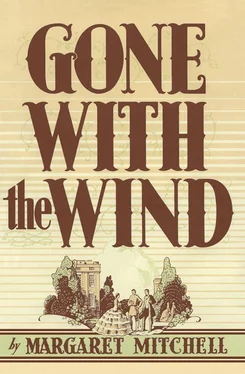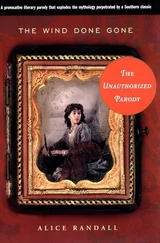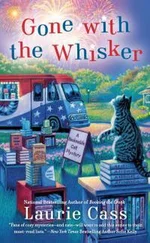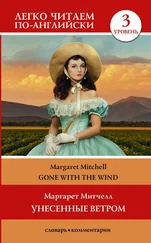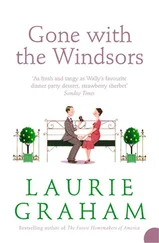Both boys yelled with laughter.
“Ma’s a card!” said Brent with loving approval. “You can always count on her to do the right thing and not embarrass you in front of folks.”
“Yes, but she’s mighty liable to talk embarrassing in front of Father and the girls when we get home tonight,” said Stuart gloomily. “Look, Brent. I guess this means we don’t go to Europe. You know Mother said if we got expelled from another college we couldn’t have our Grand Tour.”
“Well, hell! We don’t care, do we? What is there to see in Europe? I’ll bet those foreigners can’t show us a thing we haven’t got right here in Georgia. I’ll bet their horses aren’t as fast or their girls as pretty, and I know damn well they haven’t got any rye whisky that can touch Father’s.”
“Ashley Wilkes said they had an awful lot of scenery and music. Ashley liked Europe. He’s always talking about it.”
“Well—you know how the Wilkeses are. They are kind of queer about music and books and scenery. Mother says it’s because their grandfather came from Virginia. She says Virginians set quite a store by such things.”
“They can have ’em. Give me a good horse to ride and some good licker to drink and a good girl to court and a bad girl to have fun with and anybody can have their Europe… What do we care about missing the Tour? Suppose we were in Europe now, with the war coming on? We couldn’t get home soon enough. I’d heap rather go to a war than go to Europe.”
“So would I, any day… Look, Brent! I know where we can go for supper. Let’s ride across the swamp to Abel Wynder’s place and tell him we’re all four home again and ready for drill.”
“That’s an idea!” cried Brent with enthusiasm. “And we can hear all the news of the Troop and find out what color they finally decided on for the uniforms.”
“If it’s Zouave, I’m damned if I’ll go in the troop. I’d feel like a sissy in those baggy red pants. They look like ladies’ red flannel drawers to me.”
“Is y’all aimin’ ter go ter Mist’ Wynder’s? ’Cause ef you is, you ain’ gwine git much supper,” said Jeems. “Dey cook done died, an’ dey ain’ bought a new one. Dey got a fe’el han’ cookin’, an’ de niggers tells me she is de wustest cook in de state.”
“Good God! Why don’t they buy another cook?”
“Huccome po’ w’ite trash buy any niggers? Dey ain’ never owned mo’n fo’ at de mostes’.”
There was frank contempt in Jeems’ voice. His own social status was assured because the Tarletons owned a hundred negroes and, like all slaves of large planters, he looked down on small farmers whose slaves were few.
“I’m going to beat your hide off for that,” cried Stuart fiercely. “Don’t you call Abel Wynder ‘po’ white.’ Sure he’s poor, but he ain’t trash; and I’m damned if I’ll have any man, darky or white, throwing off on him. There ain’t a better man in this County, or why else did the Troop elect him lieutenant?”
“Ah ain’ never figgered dat out, mahseff,” replied Jeems, undisturbed by his master’s scowl. “Look ter me lak dey’d ’lect all de awficers frum rich gempmum, ’stead of swamp trash.”
“He ain’t trash! Do you mean to compare him with real white trash like the Slatterys? Able just ain’t rich. He’s a small farmer, not a big planter, and if the boys thought enough of him to elect him lieutenant, then it’s not for any darky to talk impudent about him. The Troop knows what it’s doing.”
The troop of cavalry had been organized three months before, the very day that Georgia seceded from the Union, and since then the recruits had been whistling for war. The outfit was as yet unnamed, though not for want of suggestions. Everyone had his own idea on that subject and was loath to relinquish it, just as everyone had ideas about the color and cut of the uniforms. “Clayton Wild Cats,” “Fire Eaters,” “North Georgia Hussars,” “Zouaves,” “The Inland Rifles” (although the Troop was to be armed with pistols, sabers and bowie knives, and not with rifles), “The Clayton Grays,” “The Blood and Thunderers,” “The Rough and Readys,” all had their adherents. Until matters were settled, everyone referred to the organization as the Troop and, despite the high-sounding name finally adopted, they were known to the end of their usefulness simply as “The Troop.”
The officers were elected by the members, for no one in the County had had any military experience except a few veterans of the Mexican and Seminole wars and, besides, the Troop would have scorned a veteran as a leader if they had not personally liked him and trusted him. Everyone liked the four Tarleton boys and the three Fontaines, but regretfully refused to elect them, because the Tarletons got lickered up too quickly and liked to skylark, and the Fontaines had such quick, murderous tempers. Ashley Wilkes was elected captain, because he was the best rider in the County and because his cool head was counted on to keep some semblance of order. Raiford Calvert was made first lieutenant, because everybody liked Raif, and Able Wynder, son of a swamp trapper, himself a small farmer, was elected second lieutenant.
Abel was a shrewd, grave giant, illiterate, kind of heart, older than the other boys and with as good or better manners in the presence of ladies. There was little snobbery in the Troop. Too many of their fathers and grandfathers had come up to wealth from the small farmer class for that. Moreover, Able was the best shot in the Troop, a real sharpshooter who could pick out the eye of a squirrel at seventy-five yards, and, too, he knew all about living outdoors, building fires in the rain, tracking animals and finding water. The Troop bowed to real worth and moreover, because they liked him, they made him an officer. He bore the honor gravely and with no untoward conceit, as though it were only his due. But the planters’ ladies and the planters’ slaves could not overlook the fact that he was not born a gentleman, even if their men folks could.
In the beginning, the Troop had been recruited exclusively from the sons of planters, a gentleman’s outfit, each man supplying his own horse, arms, equipment, uniform and body servant. But rich planters were few in the young county of Clayton, and, in order to muster a full-strength troop, it had been necessary to raise more recruits among the sons of small farmers, hunters in the backwoods, swamp trappers, Crackers and, in a very few cases, even poor whites, if they were above the average of their class.
These latter young men were as anxious to fight the Yankees, should war come, as were their richer neighbors; but the delicate question of money arose. Few small farmers owned horses. They carried on their farm operations with mules and they had no surplus of these, seldom more than four. The mules could not be spared to go off to war, even if they had been acceptable for the Troop, which they emphatically were not. As for the poor whites, they considered themselves well off if they owned one mule. The backwoods folks and the swamp dwellers owned neither horses nor mules. They lived entirely off the produce of their lands and the game in the swamp, conducting their business generally by the barter system and seldom seeing five dollars in cash a year, and horses and uniforms were out of their reach. But they were as fiercely proud in their poverty as the planters were in their wealth, and they would accept nothing that smacked of charity from their rich neighbors. So, to save the feelings of all and to bring the Troop up to full strength, Scarlett’s father, John Wilkes, Buck Munroe, Jim Tarleton, Hugh Calvert, in fact every large planter in the County with the one exception of Angus MacIntosh, had contributed money to completely outfit the Troop, horse and man. The upshot of the matter was that every planter agreed to pay for equipping his own sons and a certain number of the others, but the manner of handling the arrangements was such that the less wealthy members of the outfit could accept horses and uniforms without offense to their honor.
Читать дальше
